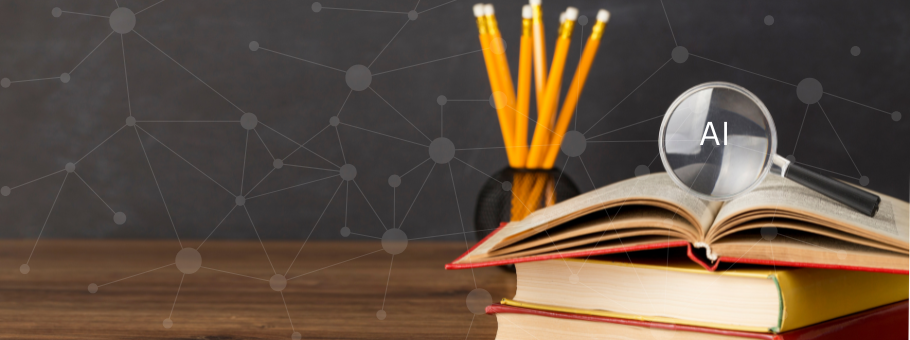Transforming Education: How AI is revolutionizing modern learning academies

Artificial Intelligence (AI) is no longer a futuristic concept—it’s actively reshaping industries around the globe, and education is no exception. As the demand for smarter, more adaptive learning systems grows, AI is becoming a cornerstone of innovation in modern learning academies. From personalized content delivery to real-time performance tracking, AI is not only enhancing how students learn but also how educators teach.
In this article, we’ll explore how AI is transforming learning academies, improving accessibility, personalizing learning journeys, and even automating core teaching functions—especially with the growing impact of AI mobile development.
The Role of AI in Modern Learning Academies
Learning academies today face challenges that traditional methods can no longer adequately address—rising student diversity, varying learning styles, and the need for scalable solutions. AI brings a powerful solution to the table.
Intelligent tutoring systems, for example, mimic human instructors by offering instant feedback, guiding students through lessons, and adjusting difficulty levels based on performance. Platforms like Carnegie Learning and Squirrel AI are using these systems to great success.
Moreover, AI can personalize curriculum delivery by analyzing each student’s strengths, weaknesses, and learning speed. This creates a tailored experience that keeps students engaged and progressing at their own pace. For educators, AI tools offer real-time analytics to identify struggling students early and refine teaching strategies accordingly.
Personalized Learning Journeys with AI
Traditional classrooms follow a one-size-fits-all approach. However, every student is unique—some grasp concepts quickly, others need repetition and support. AI solves this with adaptive learning systems that continuously adjust to meet each learner’s needs.
Imagine an AI-powered platform that recognizes a student’s struggle with algebra and immediately shifts to simpler examples or video tutorials. Once the student improves, the system elevates the difficulty, ensuring optimal engagement without frustration.
Another critical area where AI adds value is language translation and accessibility. For learners in multilingual countries or with disabilities, AI tools like real-time subtitles, audio-to-text converters, and translation engines make content more inclusive and accessible.
AI-Powered Automation for Educators
Teachers are the backbone of any educational system, but administrative burdens often take up a significant portion of their time. Here, AI comes in as a game-changer.
Automated grading systems can evaluate quizzes, multiple-choice exams, and even written essays using natural language processing (NLP). This frees up time for educators to focus on interactive and creative aspects of teaching.
AI also supports smart content generation—producing practice questions, flashcards, and even personalized feedback. These tools reduce the need for manual preparation and allow teachers to cater to individual student needs more effectively.
The Future of Mobile Learning: AI on the Go
The demand for mobile learning is surging, especially among remote learners and working professionals. As such, the convergence of mobile technology and AI is creating smarter, more flexible learning environments.
AI Mobile Development: Learning Without Limits
Thanks to advances in AI mobile development, educational apps are now capable of delivering highly personalized experiences on smartphones and tablets. These apps track user behavior—like time spent on topics, error patterns, and preferred formats—and use this data to tailor lessons in real time.
For example, an AI-powered mobile app could recognize that a student performs better with visual aids and automatically shift future lessons to include more infographics or video content. Some apps even include voice assistants that provide instant answers to questions, mimicking the role of a tutor.
This is especially beneficial in regions with limited access to traditional learning resources. AI-driven mobile platforms democratize education by putting intelligent learning in the palm of every hand.
Use Cases: How Top Academies are Leveraging AI
Several global learning platforms have already embraced AI with impressive results:
-
Khan Academy uses AI to power its mastery learning model, helping students progress based on understanding rather than time spent.
-
Duolingo, a language learning app, employs AI to personalize practice sessions, predict user mistakes, and recommend revision topics.
-
Coursera integrates machine learning to recommend courses, suggest peer discussions, and adapt quiz questions based on student performance.
These real-world examples show that AI is not a mere trend but a necessary evolution in educational delivery.
Challenges and Ethical Considerations
Despite its many advantages, AI in education comes with critical challenges. One of the biggest concerns is data privacy. Learning academies must handle sensitive student data with care, ensuring compliance with laws like GDPR and FERPA.
Another issue is algorithmic bias. If the AI is trained on biased data, it may reinforce educational inequalities instead of resolving them. Transparent AI development, diverse training datasets, and regular audits are essential to prevent this.
Finally, there’s the concern that increasing automation could diminish human interaction in classrooms. While AI can assist educators, it cannot replace the empathy, motivation, and moral guidance that only human teachers can provide.
Conclusion: Embracing AI to Empower Learning
AI is redefining the future of education. From intelligent tutoring systems and automated assessments to AI-enhanced mobile learning platforms, the technology offers powerful tools to enhance both teaching and learning.
However, the goal is not to replace educators but to empower them with intelligent tools, so they can do what they do best—nurture and inspire. Similarly, students benefit from a more personalized, engaging, and effective learning journey.
As AI mobile development continues to advance, learning academies have the opportunity to expand their reach, personalize at scale, and build a more inclusive and data-driven educational ecosystem.
The learning academy of tomorrow isn’t limited by walls or time—it’s adaptive, mobile, and intelligent. And AI is the engine driving that transformation.
- By clicking here, I state that I have read and understood the terms and conditions mentioned above.









